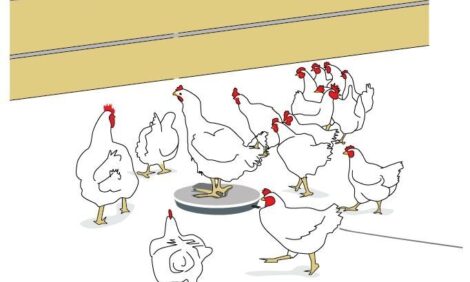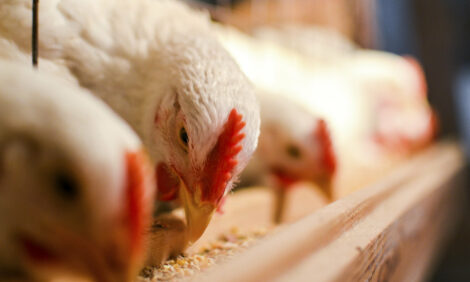



Targeted adjuvants may improve recombinant ILT vaccination immune response
Vaccination is used for controlling infectious laryngotracheitis (ILT), a highly contagious respiratory disease in broilers, which leads to poor production, mortality and condemnations.Vaccination is effective in controlling the disease; however, live attenuated vaccines may cause clinical illness while recombinant vaccines may not provide an adequate immune response, said Ravi Kulkarni, PhD, assistant professor, Department of Population Health and Pathobiology, North Carolina State University.
Live attenuated vaccines, also known as modified-live vaccines, provide optimal immunity, reduce the clinical disease, and reduce mortality, he said. But these vaccines retain virulence and may produce the disease in the vaccinated birds, which can be passed on to other birds, he added.
Recombinant ILT vaccines don’t produce the disease, can improve performance and can be administered in ovo.
However, there is delayed onset of immunity with recombinant vaccines, which is not ideal in broilers. In addition, the vaccines may not induce an optimal level of immunity, Kulkarni said.
Targeted adjuvants
To overcome the limitations of recombinant vaccines, Kulkarni and colleagues have undertaken a project, funded by the US Poultry & Egg Association, to improve the efficacy of recombinant vaccines through the use of targeted adjuvants.
A newer class of adjuvants — toll-like receptors (TLRs) — are expressed by immune system cells and recognize microbial agents, such as bacteria, viruses and fungi. TLRs can differentiate host molecular patterns from pathogens, he said.
Some synthetic DNA molecules, known as CpG molecules, have been shown to immunostimulate chicken macrophages. Certain ligands — molecules that bind to a central metal atom to form a coordination complex — can trigger TLRs when injected in chickens and have been shown to be effective against Escherichia coli, Salmonella and, to some extent, certain viruses such as the avian influenza virus, Kulkarni explained.
While TLRs have been successfully used over the last 2 decades as immunostimulatory molecules,1 Kulkarni and colleagues are focusing on TLR 21, a receptor that can recognize microbe-associated DNA.
As part of the research, the TLR 21 adjuvant will be incorporated into recombinant vaccines and tested in an experimental challenge model to investigate the immunological mechanisms of the protection and establish the correct dose to use with in ovo administration, he said.
If these adjuvants prove successful, recombinant vaccines will be able to induce as strong an immune response to ILT as live attenuated vaccines, Kulkarni said.
| References | ||||
|---|---|---|---|---|
| 1 Kumar S, Sunagar R, Gosselin E. Bacterial protein toll-like-receptor agonists: a novel perspective on vaccine adjuvants. Front Immunol. 2019 May 29. https://doi.org/10.3389/fimmu.2019.01144 | ||||












